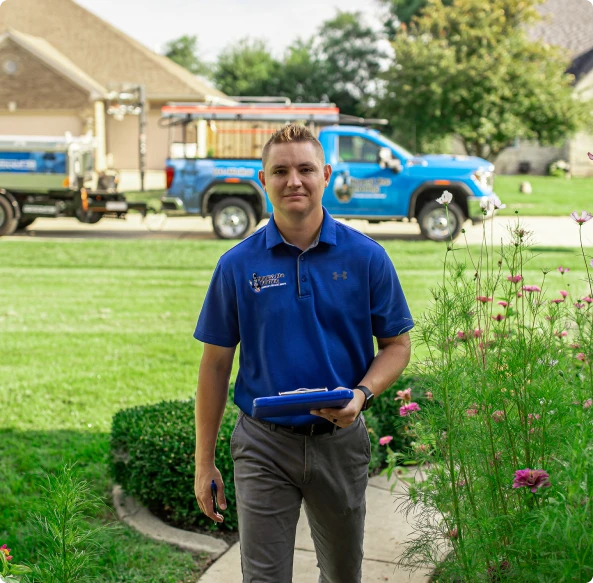Does Metal Roofing Attract Lightning?
Does Metal Roofing Attract Lightning?
Metal roofing has become a popular option for homeowners because of its durability, longevity, and energy efficiency. But those who aren’t familiar with the material tend to worry about metal roofing attracting lightning. Rest assured, if you are considering a metal roof and this is your concern, you have nothing to worry about.
Why Your Metal Roof is Safe When Lightning Strikes
Metal roofing is no more likely to be struck than any other roofing material. In fact, metal roofs are considered safer than some types of roofing materials due to their ability to conduct electrical charges evenly across their surface.
There are several reasons why metal roofs are considered safe during lightning strikes.
- Metal is a good conductor of electricity. During a lightning strike, the electrical charge is evenly distributed across the metal roof's surface, which reduces the risk of damage to your home.
- Metal roofs are grounded. Building codes require metal roofs to be properly grounded, reducing the risk of damage during a lightning strike. This involves installing a lightning protection system, which includes a network of conductors and grounding rods designed to conduct electrical charge (lightning) away from the structure.
- Metal roofs are non-combustible. Unlike other roofing materials, such as wood or asphalt shingles, metal is non-combustible, which makes it less likely to catch fire if struck by lightning.
- Metal roofs are durable. Metal roofs are designed to withstand extreme weather conditions, such as lightning, without sustaining significant damage.
Is Lightning Attracted to Metal Roofs?
Lightning is an electrical discharge that occurs when there is a buildup of electrical charges in the atmosphere. In other words, lightning strikes wherever there is a path of least resistance for the electrical discharge to travel. A metal roof can provide a path of least resistance if it is the tallest object in the area and has a direct line of sight to a storm cloud. This doesn't necessarily mean the metal roof is attracting lightning.
In fact, metal roofs are considered better than other types of roofing materials during a lightning strike.
- Wood roofing can also easily catch fire if struck by lightning. Wood does not conduct electricity as well as metal, so lightning can cause serious damage.
- Asphalt shingles can be impaired by lightning strikes, which could later result in leaks and other structural damage.
- Although concrete is not a good conductor of electricity, concrete tile roofing can crack or break if struck by lightning. This can lead to costly repairs down the line.
Because metal is a good conductor of electricity, if lightning were to strike a metal roof, the electrical charge would evenly distribute across the roof's surface and then transfer to the ground. This reduces the risk of a fire or other damage to the structure, as the electrical charge would not be concentrated in one area. Still, metal roofs need to be grounded.
Lightning Protection Systems
Lightning strikes are rare and the probability of a lightning strike hitting any particular building is low. However, if you live in an area that is prone to thunderstorms or lightning strikes, it's important to protect your home. This means ensuring your metal roof is properly grounded and you have a lightning protection system installed.
A lightning protection system (LPS) intercepts a strike and shifts the current from your metal roof guiding it safely to the ground.
Modern building codes require metal roofs be grounded to reduce the risk of damage during a lightning strike. This involves installing a lightning protection system, which consists of a network of conductors and grounding rods that are designed to intercept and safely conduct the electrical charge away from the building.
Clearing Up Other Concerns About Metal Roofing
Besides lightning strikes there are a few concerns homeowners often ask about when it comes to metal roofing.
- Noise: Metal roofs can be noisy in the rain, hail, or wind, and some homeowners are not big fans of this.
- Dents: Metals, such as aluminum or copper, are prone to denting if hit by hail or other debris.
- Expansion and contraction: Metal roofs can expand and contract with temperature changes, and this can cause fasteners to loosen over time, compromising the structural integrity.
- Corrosion: While many metals used for roofing are resistant to corrosion, some, such as steel, can rust if not properly taken care of.
- Maintenance: Metal roofs may require occasional maintenance, like tightening screws, caulking between seams, or painting.
- Cost: Metal roofs can be more expensive than some other roofing materials, and the cost can vary depending on the type of metal and the complexity of the installation.
Honest Abe is Always Here to Answer Your Roofing Questions (Honestly)
Overall, metal roofs are considered safe during a lightning strike due to their ability to conduct electrical charges evenly across their surface, their grounding systems, and their durability. However, it's important to ensure that your metal roof is properly installed and maintained to ensure maximum safety during a thunderstorm.
Any time you have a question about roofing materials, we’re happy to answer. Whether you’re considering a metal roof, an asphalt roof, or any other roofing material, give us a call.
